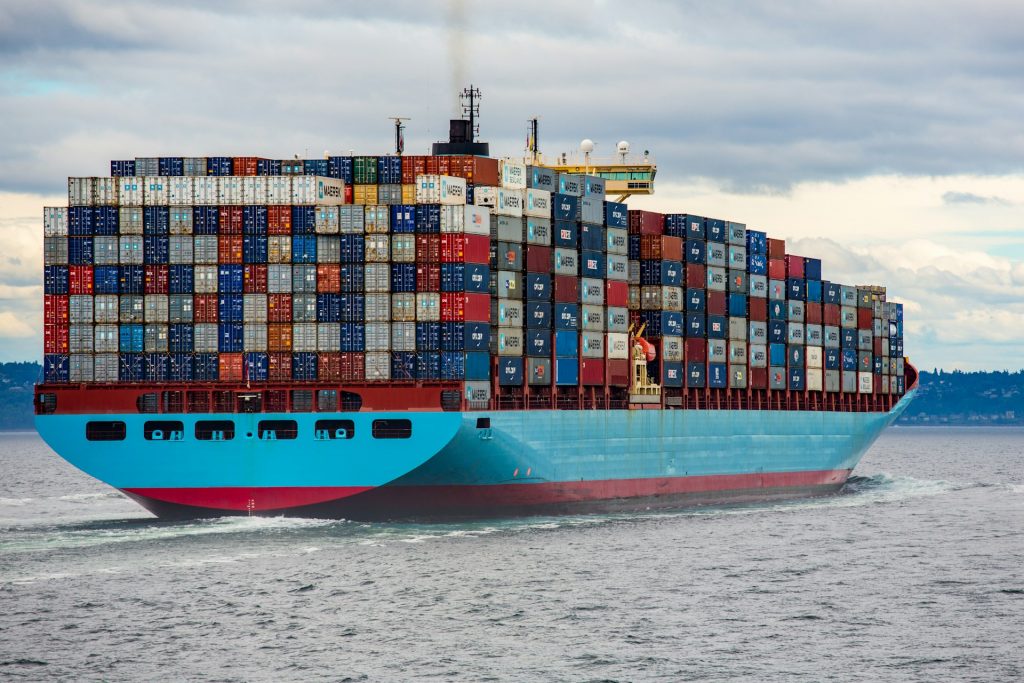Newcastle – Britain’s trade problem – and why it matters
The UK now imports vastly more than we export. What are the social and economic consequences and how can we tackle them?
Introduction
The UK now imports vastly more than we export. The Newcastle group met to discuss the social and economic consequences of our trade deficit and how can we tackle them.
A trade deficit exists when the total value of imports exceeds the total value of exports. The UK’s persistent negative balance of trade has a huge impact on the lives of all our fellow citizens, but it is rarely discussed in political discourse. We therefore decided to make Britain’s trade problem the subject of our April meeting.
The topic was introduced by William Clouston, leader of the Social Democratic Party (SDP). He explained that the UK’s trade problem is the real root of our present economic crisis. Imports can be paid for in three ways, he said – by exporting goods, by selling assets, or by issuing debt.
True cost of our trade deficit
Previous governments have allowed exports of goods to dwindle through their destructive policies of de-industrialisation and offshoring manufacturing. They have already sold off much of the ‘family silver’ to overseas investors, even allowing critical infrastructure, household name businesses and iconic buildings to fall into foreign hands. Consequently, we accumulate debt to pay for our imports. The UK’s current account deficit stood at £88 billion last year, incurring crippling levels of interest as the rates rise.
Running multi-billion pound trade deficits has beggared our country. The ability to fill our homes with cheap trinketry is poor compensation for the social consequences experienced across the UK, especially in former industrial areas. The industrial wage used to be the foundation of family life; its loss has devastated entire communities. “As the factories closed, the drug dealers moved in”, William explained. This is not simply unethical, it makes no economic sense. The UK now has a colossal welfare bill, with up to one in five people on out-of-work benefits in former industrial towns such as Middlesbrough.
We discussed the recent decision by Indian-owned Tata Steel to close two blast furnaces in Port Talbot, Wales, causing thousands of job losses. William berated the Tory government for allowing this to happen – “They’re willing to bail out bankers but content to throw industrial workers on the scrap heap. They haven’t worked out the social and economic costs of destroying a town”.
Ending the indifference
So why have successive governments pursued policies which seem to go against Britain’s own interests? William stated that the underlying cause is cultural; since the 1980s both the Tories and New Labour have been in thrall to untrammelled neoliberal economics. Wedded to the principles of free trade and open labour markets, they became indifferent to what is made where and by whom, indifferent to who owns what, and indifferent to the impacts on society.
To cure the problem, William said, we must openly challenge the ideology that created this mess.
We need to re-industrialise, he asserted, because you only really create wealth by making stuff. Manufacturing has been allowed to decline from 32% to 9% of Britain’s GDP. Our economy is now propped up by the services sector, but this is concentrated in the south east of England (and who knows how it might be impacted by AI in future…?). PiPs members pointed out that re-industrialisation will only work if there is reliable, affordable energy and a solid national programme of technical and vocational training. William agreed and stated that these are both priority areas in SDP policy.
We must also be prepared to be a bit more protectionist, he said. Indeed, many countries are coming to this conclusion since the pandemic highlighted the vulnerability of over-reliance on imports. William stressed that he is not in favour of “boneheaded autarky” – there are many benefits to international trade, and we are never going to be self-sufficient. However, unfettered free trade does not benefit all countries at all times, and we need to put Britain’s interests first.
Some members expressed concern that a more protectionist approach would mean higher prices to consumers. William challenged this by asking “do you really think things are working now?”. He agreed that there would be short-term pain, but an adjustment is necessary and the longer we leave it the harder it will be. There is also a lot of wastage in our current model of debt-fuelled consumption which could be reduced – why continue to beggar ourselves, simply to have our landfill sites full of goods from China?
We discussed the problem of regional inequality. While there are still some excellent examples of entrepreneurship in northern towns, as soon as a new industry does well it often gets sold to foreign investors. Management and R&D are then moved to the head office, draining opportunities from the region. Some members felt there should be regional as well as national protectionism, keeping Newcastle’s pounds circulating within Newcastle as far as possible. We agreed that Local Authority procurement should favour local companies.
The availability of cheap foreign goods and overseas labour has deterred innovation. One member highlighted that this is particularly evident in agriculture – if we invested in novel methods such as vertical farming, we could grow many products all year round, reducing food miles and creating jobs. Sadly, due to the ease of buying Peruvian asparagus or Spanish strawberries, there has been little incentive to do so. A more protectionist approach could change that and create wonderful new opportunities – taking advantage of the warming climate to produce more English wine was given as one example!
The recent government intervention in the bid by an Abu Dhabi-backed firm to buy the Telegraph media group was raised and discussed. Could this be a sign that the Tories are finally becoming less indifferent to foreign ownership? We agreed this was a positive move, particularly the fact that it was being challenged on national security grounds, but we all felt it was rather too little, too late.
We finished by concluding that trade deficits do matter and should be discussed more – as William said, it can’t go on like this and it must not be allowed to.
Links
The End of Indifference – SDP green paper on economics and industry: https://sdp.org.uk/the-end-of-indifference/
Should Britain become a social democracy? Mark Littlewood debates William Clouston in this video from the Institute of Economic Affairs: https://iea.org.uk/films/should-britain-become-a-social-democracy-mark-littlewood-debates-william-clouston/
Does America own Britain? Freddy Gray speaks to Angus Hanton and William Clouston about whether the ‘special relationship’ between the US and UK might be detrimental to British business in this episode of the Spectator Americano podcast: https://www.spectator.co.uk/podcast/does-america-run-britain/
Forthcoming event
Newcastle – Politics in Pubs, Tuesday 14th May 2024 at 7pm
Newcastle Politics in Pubs considers ‘Is Western Civilisation under attack?’ From the culture wars at home, to the increasingly fraught international situation, many people see our current problems as being “civilisational” in scope, with Western civilisation either under attack or crumbling from within. But what is civilisation? Can we define what is distinctly “western”? And, if it is under attack, by whom and why? Finally, we’ll ask whether we can, or even ought to, defend what is under attack and how?
You are warmly invited to join us at The Telegraph, Orchard Street, Newcastle Upon Tyne NE1 3NY (behind the Central Station), for our next meeting on Tuesday 14th May 2024 at 7:00pm. See here for location.
We are growing!
We are expanding our activities via regional Politics in Pubs groups and have created a map where you can search for a group near you. If you live near Salisbury or Northampton we have members who wants to start new groups in those towns, so please let us know if this of interest.
Don’t worry if you can’t find anything nearby as you can start your own group. If you would like to be put in touch with other people interested in talking about politics, please reply to this email letting us know your location and we’ll help to get the conversation started.
We have also started to grow our network with other free speech groups who have a similar interest in open discussion and debate. If you have such a group and want to appear on our map please get in touch.

